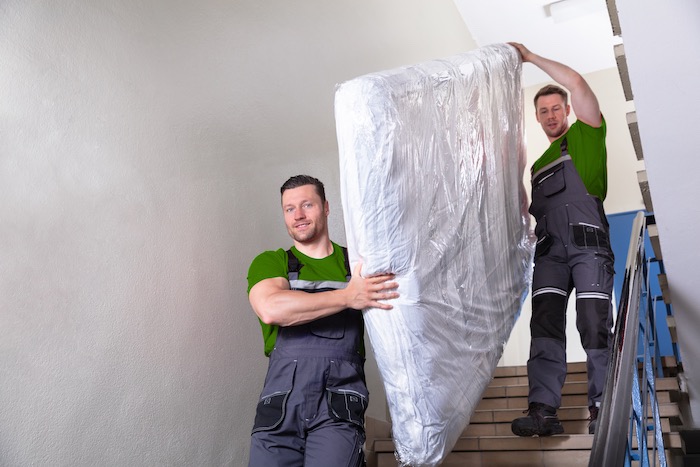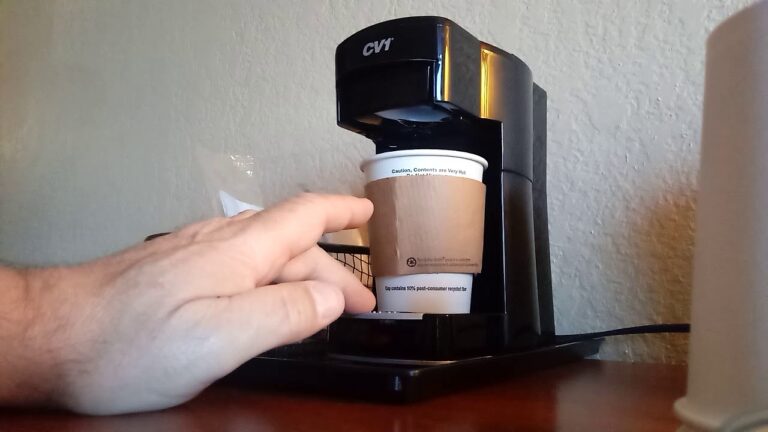How Often Do Hotels Replace Mattresses
Hotels usually replace mattresses every 7 to 10 years. Hotels typically replace their mattresses every 7 to 10 years.
However, the frequency of replacement depends on various factors such as the hotel’s budget, occupancy rates, and the overall condition of the mattresses. Mattresses in hotels endure constant use, resulting in wear and tear over time. As a result, hotel owners and management prioritize the comfort and satisfaction of their guests by planning regular mattress replacements.
By doing so, hotels aim to maintain good sleep quality, hygiene standards, and overall guest experience. Consequently, periodic mattress replacements contribute to ensuring a comfortable and enjoyable stay for hotel guests.
Navigate Where You Want:
- Factors Affecting The Lifespan Of Hotel Mattresses
- Signs It’S Time To Replace Hotel Mattresses
- How Often Do Hotels Tend To Replace Mattresses?
- Benefits Of Regularly Replacing Hotel Mattresses
- Extending The Lifespan Of Hotel Mattresses
- Case Studies: Famous Hotels And Their Mattress Replacement Practices
- Frequently Asked Questions Of How Often Do Hotels Replace Mattresses
- How Often Should Hotel Mattresses Be Replaced?
- What Factors Determine When Hotels Replace Mattresses?
- How Does The Quality Of A Hotel Mattress Impact Guest Satisfaction?
- Can Guests Request A New Mattress In Hotels?
- Conclusion
Factors Affecting The Lifespan Of Hotel Mattresses
Hotels replace mattresses based on factors like occupancy rates, room rates, mattress quality, guest turnover, and room cleaning frequency. High occupancy rates and frequent guest turnover can accelerate the wear and tear of mattresses. Lower-priced hotels may have more guests and higher turnover, resulting in more frequent mattress replacements.
Additionally, the quality of the mattress plays a significant role in its lifespan. Higher-quality mattresses generally last longer and require less frequent replacements. Moreover, the frequency of room cleaning also affects mattress lifespan. Regular cleaning helps in maintaining the mattress condition, while neglecting it can lead to more frequent replacements.
Hotels need to carefully consider these factors to ensure guests’ comfort and maintain a positive reputation.
Signs It’S Time To Replace Hotel Mattresses
Hotel mattresses are subject to wear and tear over time, leading to reduced comfort and support. This can result in guest complaints. Apart from that, hygiene concerns are also a significant factor to consider. Regular use may cause the mattresses to accumulate germs and allergens, posing a potential risk to guests’ health.
As a result, hotels should be proactive in assessing the condition of their mattresses and replacing them when necessary. By doing so, they can ensure that their guests have a comfortable and hygienic stay, minimizing any negative feedback or reviews.
Paying attention to these signs will help hotels maintain their reputation for providing a pleasant and relaxing experience to their guests.
How Often Do Hotels Tend To Replace Mattresses?
Hotels tend to replace mattresses at varying intervals based on factors like hotel category, usage, and quality. High-end hotels usually replace mattresses every 7-10 years to provide optimal comfort and maintain high standards. Mid-range hotels typically replace mattresses every 5-7 years, ensuring a comfortable stay for their guests.
Budget hotels, aiming for cost-efficiency, replace mattresses around every 3-5 years. Factors like usage frequency, guest satisfaction, and budget constraints influence the decision to replace mattresses. Guest feedback and reviews play a crucial role in determining when hotels prioritize mattress replacement.
Additionally, hotels may consider the durability and quality of mattresses to maintain guest satisfaction. These factors collectively influence how often hotels replace mattresses, thus ensuring a pleasant and restful stay for their guests.

Credit: goloadup.com
Benefits Of Regularly Replacing Hotel Mattresses
Regularly replacing hotel mattresses offers several benefits. It enhances guest satisfaction by providing a comfortable sleep experience. This positive experience plays a crucial role in shaping online reviews, boosting a hotel’s reputation. Moreover, by ensuring mattresses are consistently replaced, hotels can improve guest loyalty.
Satisfied guests are more likely to return and recommend the hotel to others. With increased customer loyalty, hotels can establish a strong brand reputation. This creates a positive image that stands out in a competitive market. By prioritizing the regular replacement of mattresses, hotels can optimize guest experiences, leading to higher satisfaction levels and improved business outcomes.
Extending The Lifespan Of Hotel Mattresses
Hotels often replace mattresses to extend their lifespan. One way they achieve this is by investing in high-quality mattresses. Implementing maintenance strategies is crucial. Regularly inspecting and cleaning the mattresses helps identify and address any potential issues. Utilizing mattress protectors is another effective method.
These protective covers prevent stains, spills, and dirt from penetrating the mattress, keeping it clean and increasing its durability. By following these practices, hotels can ensure that their mattresses last longer, providing comfort and satisfaction to their guests throughout their stay.
Regular mattress replacement not only enhances the overall guest experience but also reflects a commitment to quality and hygiene.
Case Studies: Famous Hotels And Their Mattress Replacement Practices
Case studies reveal famous luxury hotels frequently replace their mattresses as part of their renowned guest satisfaction strategy. Renowned hotels like Hotel A prioritize replacement frequency to ensure optimal guest comfort. Their commitment reflects in the positive guest feedback and satisfaction levels, impacting brand reputation significantly.
In contrast, Hotel B, a mid-range hotel with a focus on sustainability, showcases unique mattress recycling initiatives. By implementing eco-friendly practices, they extend the lifespan of their mattresses, impressing guests with their responsible approach. In addition to positively influencing guest perception, this contributes to reducing their environmental impact.
These diverse approaches by luxury and mid-range hotels illustrate the importance of mattress replacement in enhancing guest experience while considering sustainability and brand reputation.
Frequently Asked Questions Of How Often Do Hotels Replace Mattresses
How Often Should Hotel Mattresses Be Replaced?
Hotel mattresses should ideally be replaced every 7 to 10 years. This timeframe ensures that the mattresses remain comfortable, supportive, and hygienic for the guests to have a restful stay.
What Factors Determine When Hotels Replace Mattresses?
Hotels consider factors such as wear and tear, guest feedback, quality of sleep, hygiene standards, and brand image when determining the replacement of mattresses. They aim to maintain a standard of comfort and satisfaction for their guests.
How Does The Quality Of A Hotel Mattress Impact Guest Satisfaction?
The quality of a hotel mattress directly impacts guest satisfaction. A comfortable and supportive mattress ensures a good night’s sleep, leading to happier guests who are more likely to return and leave positive reviews.
Can Guests Request A New Mattress In Hotels?
Yes, guests can request a new mattress if they are unsatisfied with their current one. Hotels value guest comfort and will often accommodate such requests to ensure a pleasant stay experience.
Conclusion
After delving into the topic of how often hotels replace mattresses, it is evident that regular mattress replacements are crucial for maintaining guest satisfaction and ensuring a comfortable stay. Hotels typically replace mattresses every 7-10 years, taking into account factors such as wear and tear, quality standards, and guest feedback.
By investing in high-quality mattresses and following a proactive replacement schedule, hotels can enhance the overall experience for their guests and promote positive online reviews. It is important for hoteliers to prioritize mattress hygiene, as mattresses can accumulate allergens and dust mites over time, leading to potential health risks.
By implementing a robust mattress replacement strategy, hotels can not only improve guest comfort but also drive repeat business and enhance their reputation in the highly competitive hospitality industry.
Related Articles To Read:





